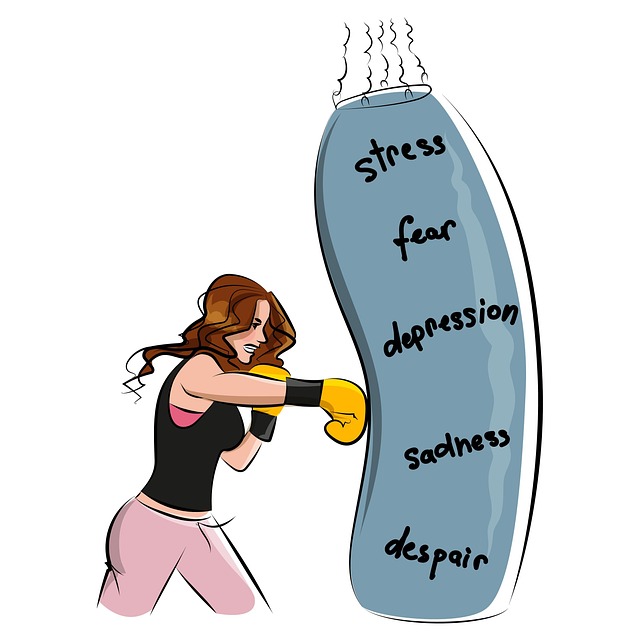Boulder Abuse Survivors Therapy (BAT) emphasizes resilience-building through the RFM framework: Resourcefulness, Fortitude, and Mastery. Their exercises focus on identifying internal strengths, external support, boosting confidence through achievable challenges, and gradually facing triggers while learning healthy coping mechanisms like mindfulness. BAT incorporates diverse strategies including art therapy, physical activities, and public awareness campaigns to cater to individual needs, fostering community, mental wellness, and a sense of belonging for trauma survivors.
“Resilience is a powerful tool for healing, especially for those who have endured trauma. This article explores RFM (Resources, Strengths, and Coping Mechanisms), a framework crucial in understanding and fostering resilience among survivors. We delve into the role of RFM in recovery, offering insights on how individuals can navigate their journey towards healing. From common exercises to real-life examples like the transformative power of Boulder Abuse Survivors Therapy, this guide equips readers with knowledge to support themselves or loved ones in building mental fortitude.”
- Understanding RFM and Its Role in Resilience Building for Survivors
- Common Exercises to Enhance Resilience After Trauma
- Boulder Abuse Survivors Therapy: A Case Study on Healing and Growth
Understanding RFM and Its Role in Resilience Building for Survivors

Resilience is a vital component in healing from trauma, especially for survivors of complex abuse like Boulder Abuse Survivors Therapy clients. Understanding RFM (Resourcefulness, Fortitude, and Mastery), a framework that highlights an individual’s capacity to adapt and overcome adversity, can empower survivors with effective tools for building mental strength.
RFM exercises focus on fostering resourcefulness by identifying internal strengths and external support systems. They promote fortitude through challenging but achievable tasks that build confidence in one’s ability to endure difficult situations. Finally, mastery skills are developed through gradual exposure to feared triggers and learning healthy coping mechanisms, such as mindfulness techniques or empathy-building strategies, to manage mood and improve mental health awareness. These exercises serve as a cornerstone for survivors’ journeys towards healing and reclaiming their lives.
Common Exercises to Enhance Resilience After Trauma

After experiencing trauma, building resilience is a crucial step towards healing and recovery. Common exercises to enhance resilience include mindfulness practices such as meditation and deep breathing techniques. These practices help individuals stay grounded in the present moment, reducing the impact of intrusive thoughts and flashbacks related to the traumatic event. Engaging in regular physical activity, like yoga or walking, can also be beneficial, as it promotes the release of endorphins, improves mood, and enhances overall well-being.
Boulder Abuse Survivors Therapy often incorporates a range of resilience-building strategies tailored to individual needs. This may include exploring creative outlets like art therapy or journaling, learning effective stress management techniques such as progressive muscle relaxation, and developing conflict resolution skills to navigate interpersonal challenges. Public Awareness Campaigns for trauma recovery play a vital role in normalizing these healing processes, fostering support systems, and encouraging individuals to seek help when needed.
Boulder Abuse Survivors Therapy: A Case Study on Healing and Growth

Boulder Abuse Survivors Therapy (BAST) serves as a compelling case study for understanding the profound impact of tailored resilience-building exercises. This innovative program, designed to support individuals who have experienced abuse, goes beyond traditional therapy models by incorporating elements of community outreach and mental wellness initiatives. BAST recognizes that healing is not merely an individual process but is greatly enhanced through connection and shared experiences.
The program’s success lies in its holistic approach, which addresses emotional intelligence and fosters a sense of belonging within the community. By implementing targeted interventions, BAST helps survivors regain control over their lives, cultivate healthy coping mechanisms, and build lasting resilience. This case study highlights how effective interventions can transform lives, offering hope and empowering individuals to thrive despite their past experiences.
Resilience is a powerful tool for those who have experienced trauma, and understanding RFM (Resourceful Fulfillment Model) can significantly enhance recovery processes. As demonstrated by the case study on Boulder Abuse Survivors Therapy, combining RFM principles with targeted exercises can lead to profound healing and personal growth. By utilizing these strategies, survivors can navigate their challenges and build a fulfilling life post-trauma. This approach not only empowers individuals but also contributes to the broader goal of supporting and strengthening resilience in vulnerable communities.














